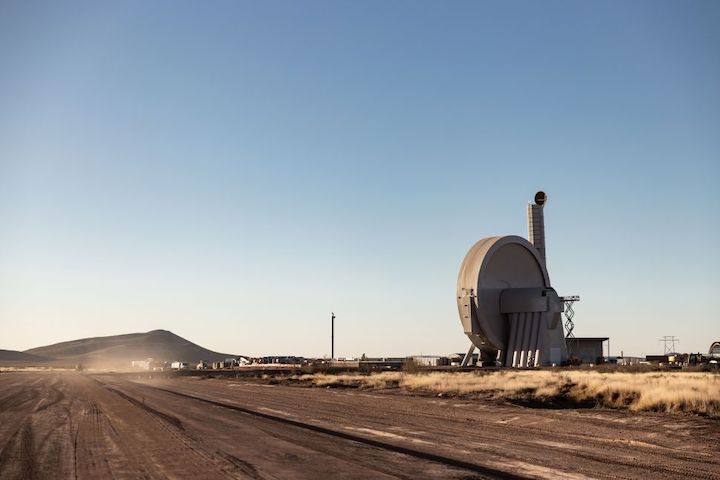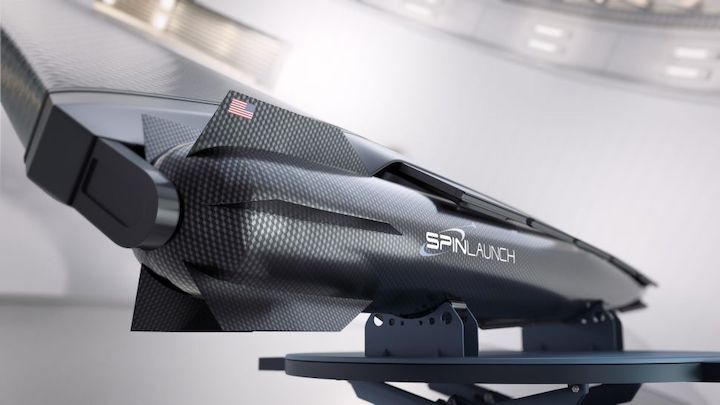8.04.2022
The suborbital flight will help test SpinLaunch's unique kinetic-energy based launch system.

Alternative launch company SpinLaunch's spin chamber is seen at Spaceport America in New Mexico. The system flings rockets into the sky with a spinning arm. (Image credit: SpinLaunch)
NASA will soon take a unique launch system out for a spin.
The agency has signed on to send a payload up using a suborbital, kinetic-energy based system developed by California-based company SpinLaunch. The test flight, which is expected later this year, will "provide valuable information to NASA for potential future commercial launch opportunities," SpinLaunch representatives said in an emailed statement.
The newly revealed Space Act Agreement is part of NASA's Flight Opportunities Program, which helps demonstrate technologies that could aid the agency's science and exploration portfolios down the road and spur the growth of the private spaceflight industry.

SpinLaunch uses a spinning arm to accelerate a rocket and fling it into the sky to lower the cost of launch. (Image credit: SpinLaunch)
SpinLaunch aims to help power that growth with its novel launch strategy. That strategy involves accelerating rockets to tremendous speeds here on terra firma using a rotating arm and then flinging them skyward. The launch vehicles will light up their engines when they're already high in the sky, greatly reducing the amount of fuel and hardware — and, by extension, money — needed to reach orbit.
SpinLaunch has already conducted a series of test flights from New Mexico's Spaceport America using its suborbital accelerator. The company aims to launch its first orbital test flights in 2025.
The new agreement with NASA is an important milestone in SpinLaunch's journey, said company founder and CEO Jonathan Yaney.
"SpinLaunch is offering a unique suborbital flight and high-speed testing service, and the recent launch agreement with NASA marks a key inflection point as SpinLaunch shifts focus from technology development to commercial offerings," Yaney said in the same emailed statement.
"What started as an innovative idea to make space more accessible has materialized into a technically mature and game-changing approach to launch," he added. "We look forward to announcing more partners and customers soon and greatly appreciate NASA's continued interest and support in SpinLaunch."
Quelle: SC
